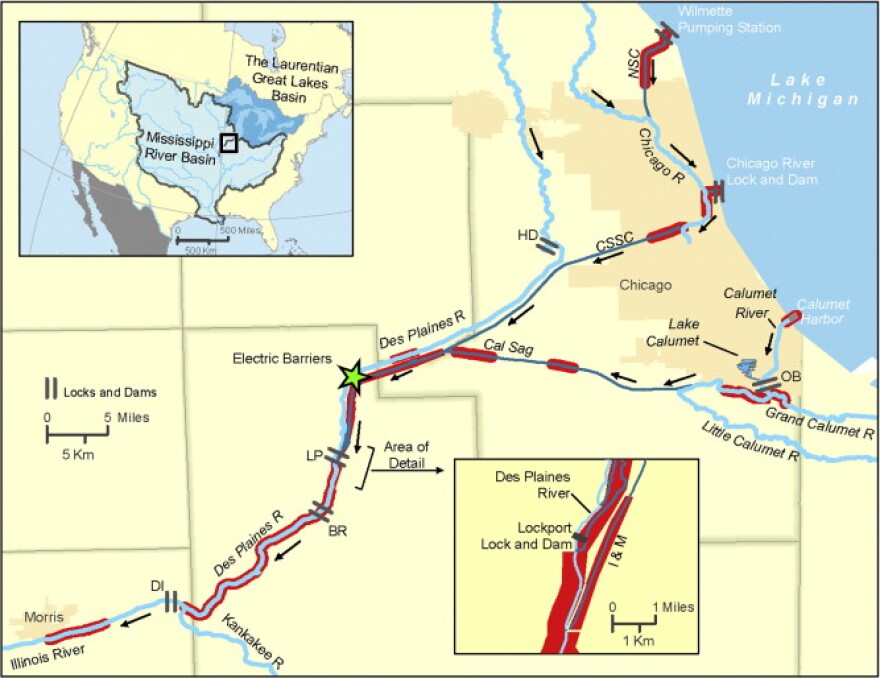The Great Lakes and the Mississippi River basin are connected, but it's an artificial connection.
Around the turn of the last century canals and channels were dug that reversed the flow of water.
Waters that used to flow into Lake Michigan now flow into the Des Plaines River and eventually into the Mississippi.
The reversal was a way of separating Chicago's sewage from its drinking water supply.
And with more than 2 billion gallons of water a day flowing out of Lake Michigan, it's the largest diversion of Great Lakes water.
Undoing what was done around a hundred years ago has been considered crazy talk because of the expense involved, but some scientists are now embracing that idea.
In a new paper released in the Journal of Great Lakes Research, four lead scientists (Jerry Rasmussen, Henry Regier, Richard Sparks, and William Taylor) argue that the costs of permanent separation of the Great Lakes and Mississippi River Basin are worth it.
They say if Asian Carp establish themselves in the Great Lakes, the devastation to the ecosystem will far outweigh the costs of permanent separation.
MSU fisheries scientist William Taylor was quoted in an MSU press release about the paper:
"I am tired of studying what we already know is going to happen. We’ve watched this coming on for 10 years. We know what’s going to happen," said Taylor. "The Asian carp are going to whack the tributaries. They’re going to eat all the food – they eat anything they get in their mouth, and that means they’ll eat the food base that our resident fish would normally eat. They will change the food web and dominate our streams and near shore regions in the Great Lakes basin."
The MSU release says the published paper examines the following claims by policy makers:
- Existing electric barriers are effective in preventing the spread of the Asian carp.
- It is too late to prevent an Asian carp invasion.
- Asian carp will not thrive in the Great Lakes.
- Asian carp are not likely to cause serious damage to the Great Lakes.
The idea that more study is needed is "exasperating" to the science community, according to Taylor.
Now is a time for action, he said.
The Associated Press spoke with Mark Biel, chairman of a business and industry coalition called "UnLock Our Jobs."
Biel said the paper was biased, and that the current electric barriers, which were expanded to keep Asian Carp out of the Great Lakes, should be improved.
From the AP:
"The issues this report claims to address have been asked and answered repeatedly," Biel said. "It's time we move on to maintaining and improving current barriers as well as implementing comprehensive solutions across the region. Separation simply isn't one of them." His group contends that dividing the basins or closing shipping locks would cost billions and devastate a regional economy that depends on movement of cargo on northern Illinois waterways.
The scientists who wrote the paper say Congress should pass legislation "mandating the U.S. Army Corps of Engineers to complete a study that offers a permanent solution based on the best scientific information and engineering technology available."









